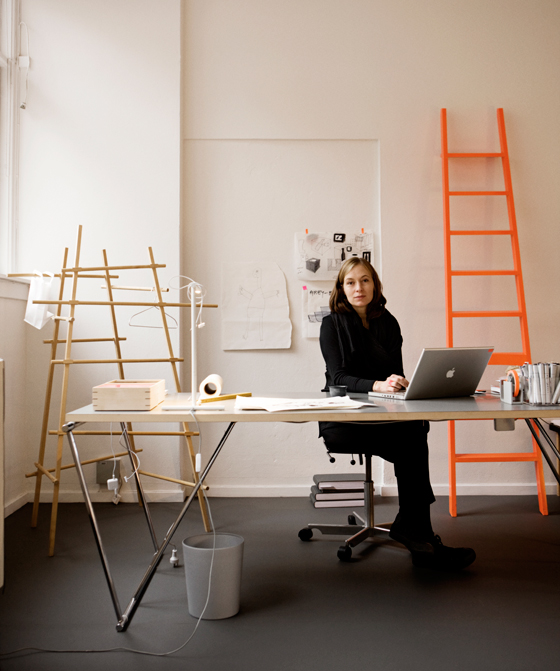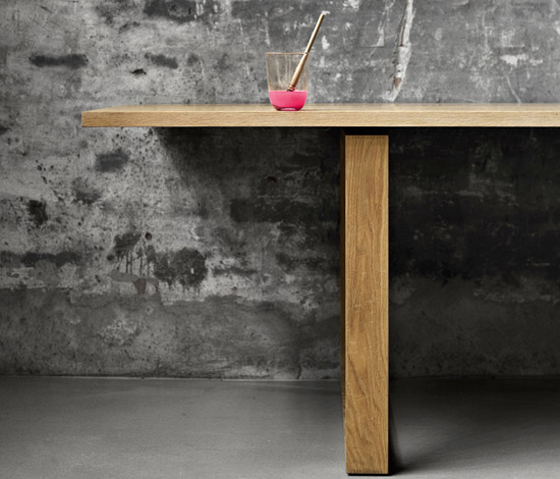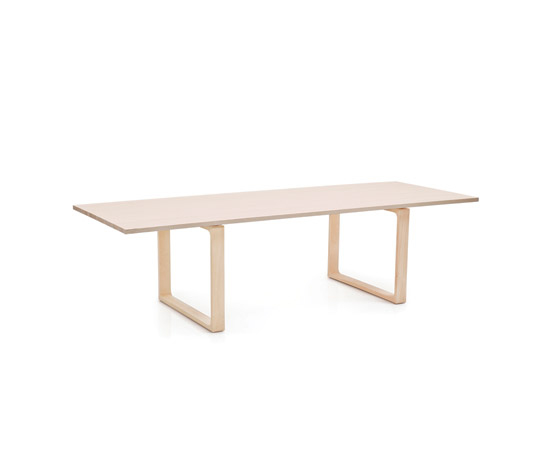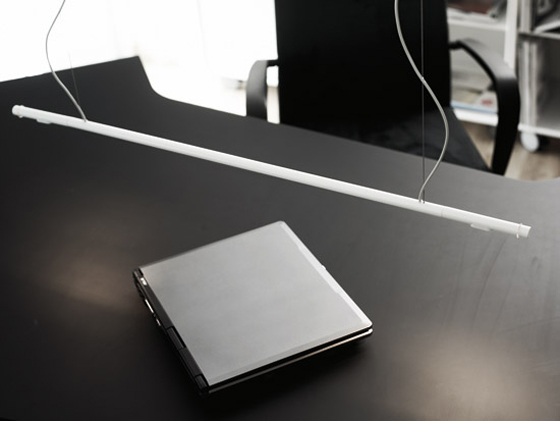"...with the level of quality our grandparents demanded"
Scritto da Nora Schmidt
Berlin, Germania
06.05.10
"Cecilie is just like her furniture," a friend of mine who works as a designer told me when I mentioned I was going to be interviewing the Copenhagen-based designer Cecilie Manz. And, indeed, Manz exudes a calmness and composure much like her pared-down, uncomplicated work.
"Cecilie is just like her furniture," a friend of mine who works as a designer told me when I mentioned I was going to be interviewing the Copenhagen-based designer Cecilie Manz. And, indeed, Manz exudes a calmness and composure much like her pared-down, uncomplicated work. It was extremely rewarding to meet her at this year's Stockholm Furniture Fair in February. Here's our conversation.
As predicted, this year's fair features a large number of novelties. It's amazing just how quickly new products, which all claim good reasons to exist, are developed and produced. How long do you work on an object?
Yes, the mass of new products is incredible, but if you've ever spent time on a stand at a design fair, you'll know that "What are you showing that's new this year?" is always the first question to be asked. No wonder that manufacturers feel under pressure.
The development time of an object really depends on its complexity. But I can say for certain that, regardless of what type of object it is, it takes no less than a year for development. I'd say, on average, it's between one and two and a half years.
You work alone. Does that mean you don't like working in a team?
I've always worked on my own. Perhaps because I've never found the perfect partner. I don't know. My work situation is perfect at the moment: I've got an assistant, who I value enormously. She questions my designs at critical points in the process. But I always have the last word.
This means that the number of commissions is limited.
That's right. But I'd find it tough to take on commissions that I couldn't look after properly. I can get enormousy involved in a project and that's precisely what I like about my work. I can't simply hand this intensive involvement over to another person. In this sense, a small, manageable studio is what suits me.
You've had your own studio for almost 12 years. How has the way that you work changed during this time?
Naturally, I've learnt a lot of practical things. A lot of blind alleys that I used to go down in the design process I now know not to revisit. This means my work is more focused, though it's more limited, too. Apart from that, I still work in an old-fashioned way: I draw a lot with pencil and coloured pens, build small models. Thank God I can't draw on a computer...
Your designs are extremely reduced in form. Do you see your work in the context of your Danish heritage?
Definitely. I believe our roots are in our blood and the culture that surrounds us, defines us. We people from the North tend to be quite sober and that shows up in classic Danish design. I try to limit my objects to the essential. In doing so, my work mirrors my temperament very well.
In spite of all restraint, as a designer you are part of a system in which sales figures are a decisive valuation factor.
I'm very aware of this, but I definitely don't want to create things whose appearance and construction don't serve their function. Many things are produced and bought, without people having thought about them. There should always be a clear reason for designing and producing a new product. It could be to improve functionality or to rationalise something, such as the use of a material, for example.
I assume this applies to the way your are furnished yourself.
I pay great attention to quality. If something is designed well and made from a durable material, then it's sustainable in a very traditional sense. I would like to keep the objects that surround me for as long as possible. It's a lot more apparent with clothes. If I had the choice between ten blouses from H&M or an expensive but high-quality blouse, I'd always choose the latter. It feels good to move in a garment whose cut and material someone has spent a lot of time thinking about – you automatically want to hold on to it and therefore you treat it with care.
I believe that we, as consumers, in spite of the crazy amount of choice the market offers us, need to develop once again an awareness of quality. I don't want to sound nostalgic, but these are the demands our parents and grandparents had.
That type of consumer behaviour would be a disaster for the world economy.
Yes, that could be true. But, whatever. It would still be preferable.
How do you think such an awareness can be increased?
I think this can only be achieved through education. But one thing is important: It's not about taste. It's about awareness. I don't want to challenge anyone on the grounds of taste. More important is that they reflect on why they like something or why they don't, rather than be indifferent.
Of course, not everyone can afford a Gio Ponti chair, but nonetheless you can consume in a more conscious way.
Thanks for talking to us.









